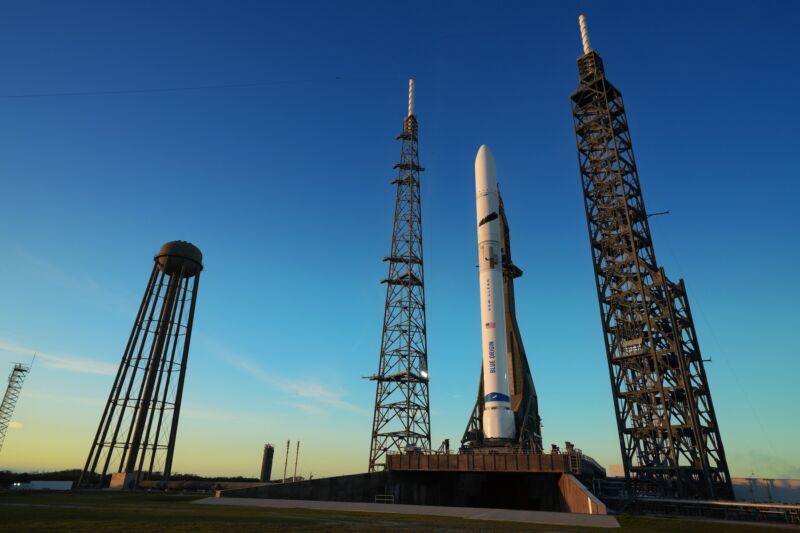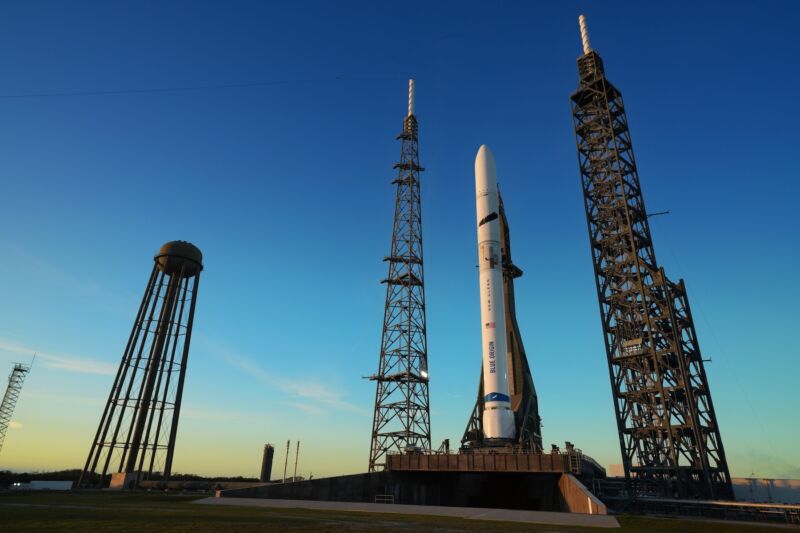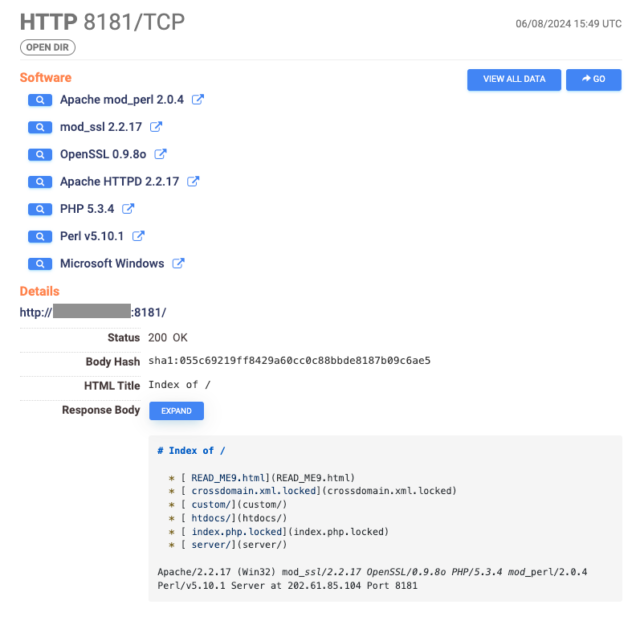
Enlarge / Blue Origin’s New Glenn rocket on the launch pad for testing earlier this year. (credit: Blue Origin)
After years of lobbying, protests and bidding, Jeff Bezos’s space company is now a military launch contractor.
The US Space Force announced Thursday that Blue Origin will compete with United Launch Alliance and SpaceX for at least 30 military launch contracts over the next five years. These launch contracts have a combined value of up to $5.6 billion.
This is the first of two major contract decisions the Space Force will make this year as the military seeks to foster more competition among its roster of launch providers, and reduce its reliance on just one or two companies.

















